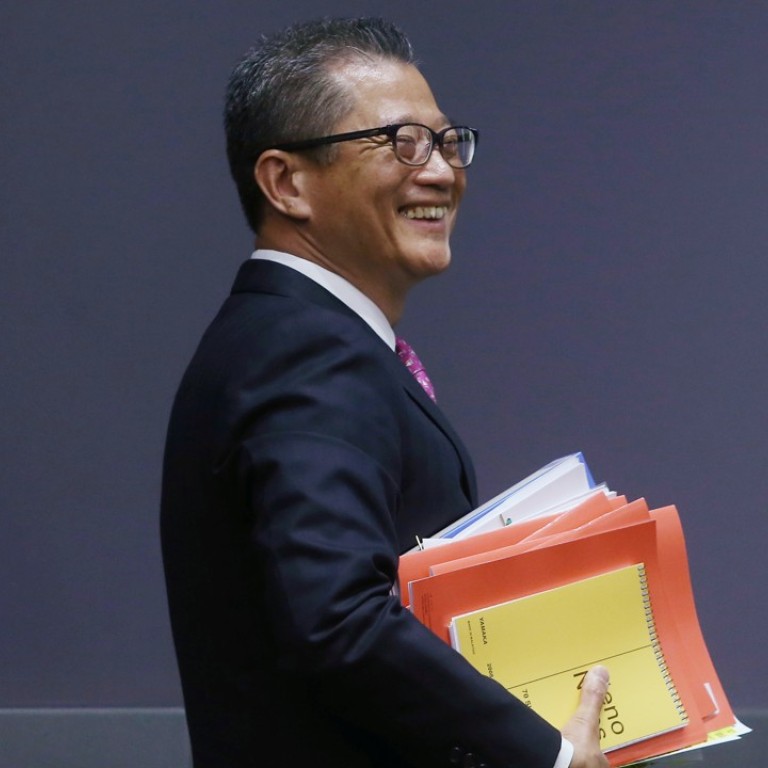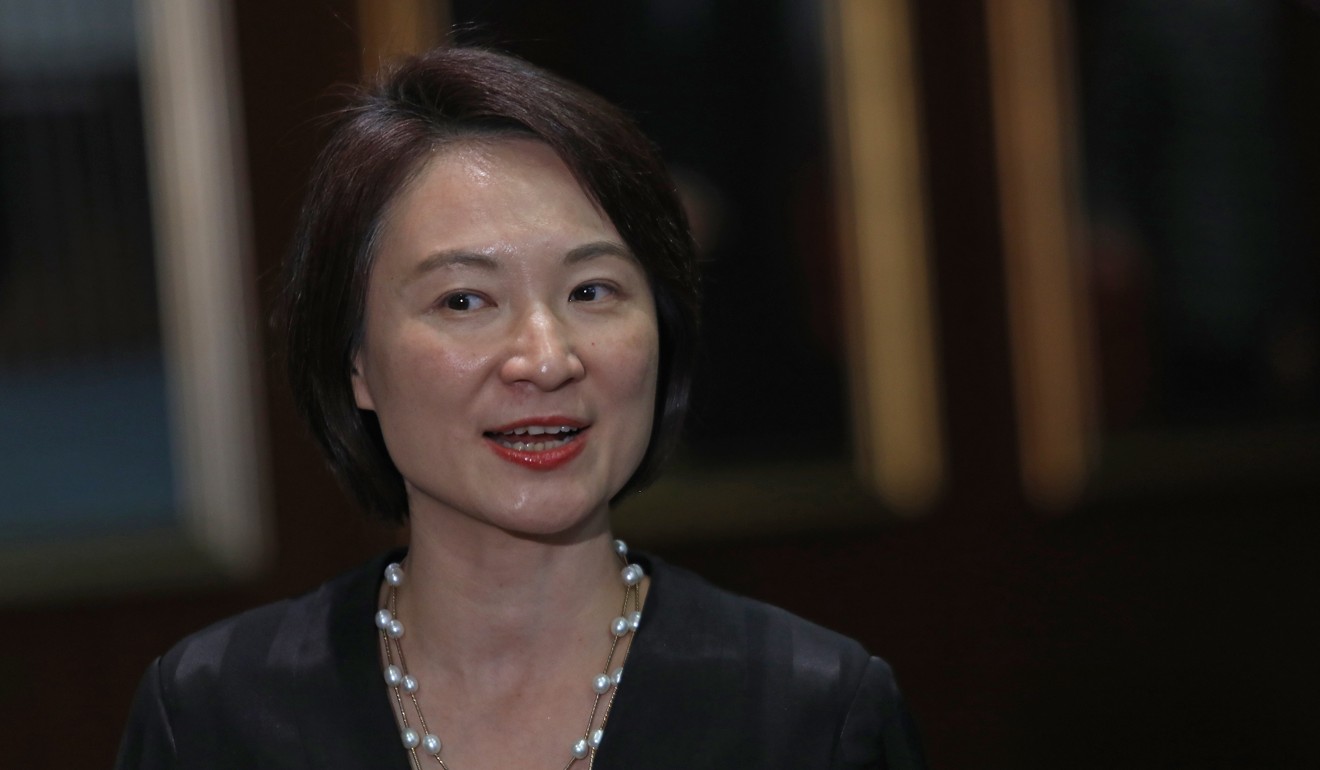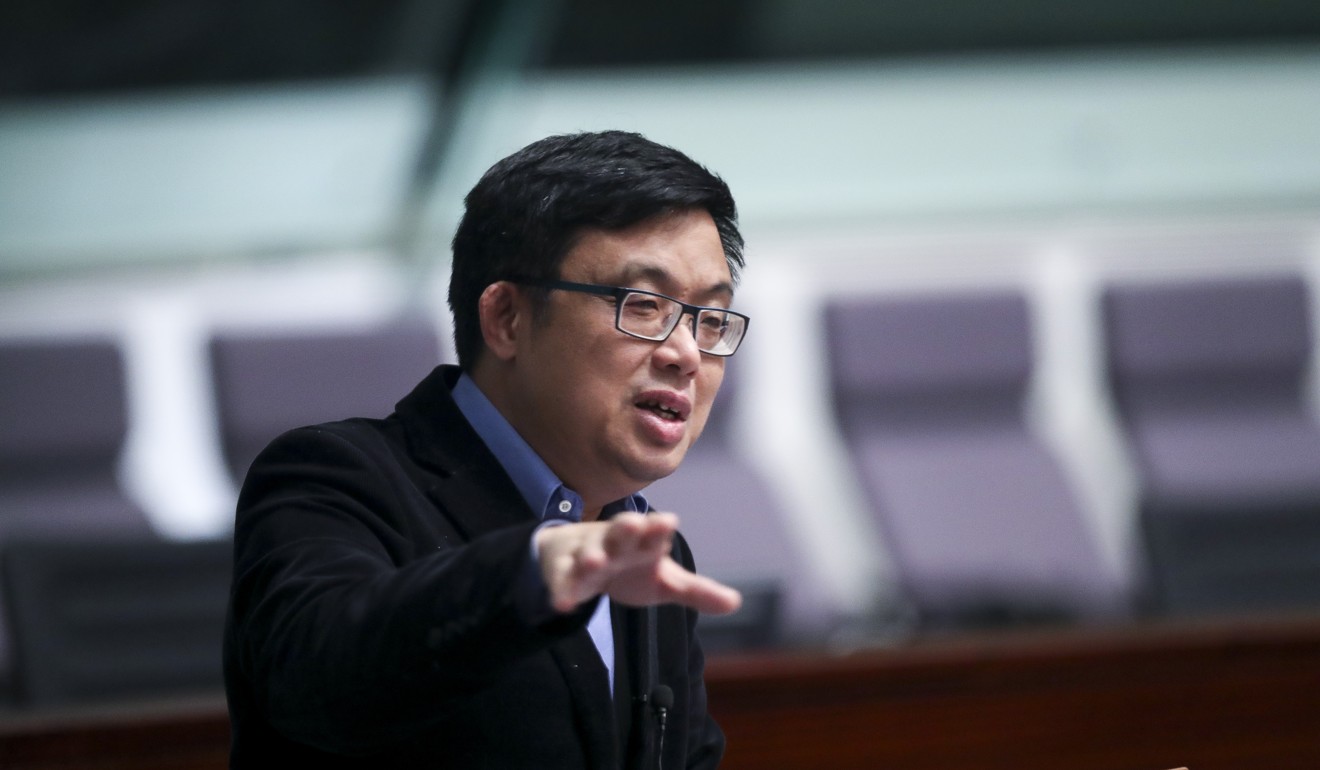
Big-spending finance chief Paul Chan’s budget fails to impress most Hongkongers
Lawmakers take aim at financial secretary as survey finds just 26 per cent of Hongkongers satisfied with spending plan – the lowest level in four years
Lawmakers across the political spectrum on Thursday urged Hong Kong’s finance chief to do more for poor residents who will not benefit from the massive tax breaks announced in his budget, as a poll showed the dissatisfaction rate with the government’s financial blueprint has reached 41 per cent – the highest in the past four years.

Hong Kong reboots with ‘back to the future’ budget
With the government sitting on a record surplus of HK$138 billion (US$17.7 billion), Chan has planned massive spending to ease people’s burdens, as well as investing in the future.
But at a Finance Committee meeting at the Legislative Council on Thursday, the financial secretary came under fire from across the political divide.

“Investing in the future and sharing with the public are not the opposite,” said Starry Lee Wai-king, chairwoman of the largest pro-establishment party, the Democratic Alliance for the Betterment and Progress of Hong Kong.
“I can’t agree with you that the budget has shared with the citizens evenly … As the government has the ability, can we do more?”
Six key budget takeaways you need to know
Lee said many disappointed residents, including retired couples and families living in public housing, had come to her complaining that they would not benefit from the budget.
Her party colleague Leung Chi-cheung went further and pressed Chan on whether he could come up with some remedies and amend the budget.

More than HK$50 billion will be shared with at least two million Hongkongers – mostly through targeted tax breaks, rate waivers and beefed-up allowances, HK$7 billion of it being dished out to the poor through an extra two months of Comprehensive Social Security Assistance, Old Age Allowance or Disability Allowance.
However, lawmakers criticised Chan for uneven distribution of the sweeteners, saying he had abandoned people who fall between the cracks as they are neither taxpayers nor receiving allowances.
Electric car buyers get new HK$250,000 tax break but will it boost market?
“Some consortiums can save up to HK$900 million because of the rates waiver. Yet, around 1 million workers are being abandoned,” Democratic Party lawmaker James To Kun-sun said, warning that it would lead to social chaos.
He had suggested the government hand out HK$6,000 in allowances to all citizens, but including tax breaks in the calculation. Poor people who do not need to pay tax and workers not receiving HK$6,000 in tax cuts were the groups targeted. For example, a worker who got a HK$2,000 tax cut would still get a HK$4,000 handout.

But rejecting the criticism, Chan said the budget was well balanced. “Although not everyone is satisfied, we have done our best,” he told lawmakers, adding that many things had already been done for the city’s less well off.
Government to bail out Ocean Park with HK$310 million
Chan also said he did not waive rents for public housing tenants as many of them would get other subsidies through elderly or social welfare allowances.

